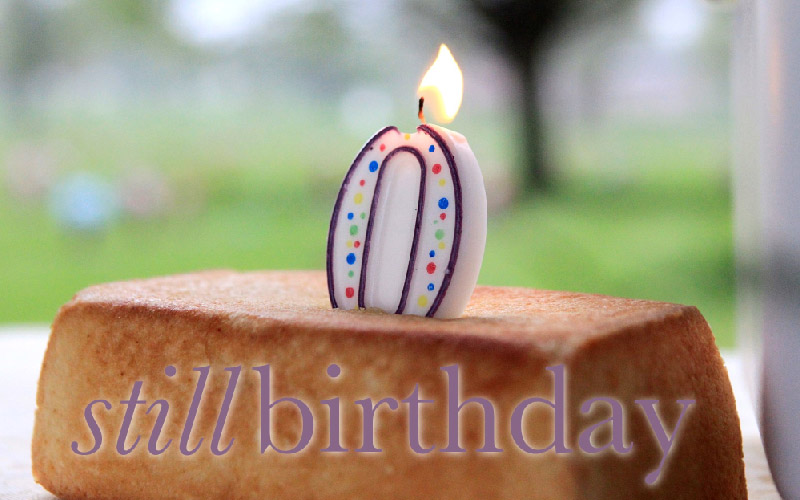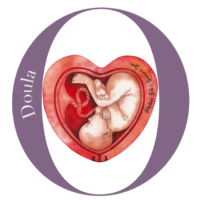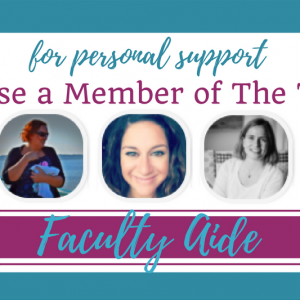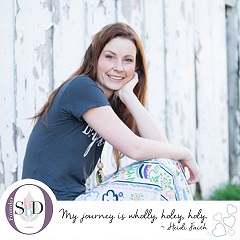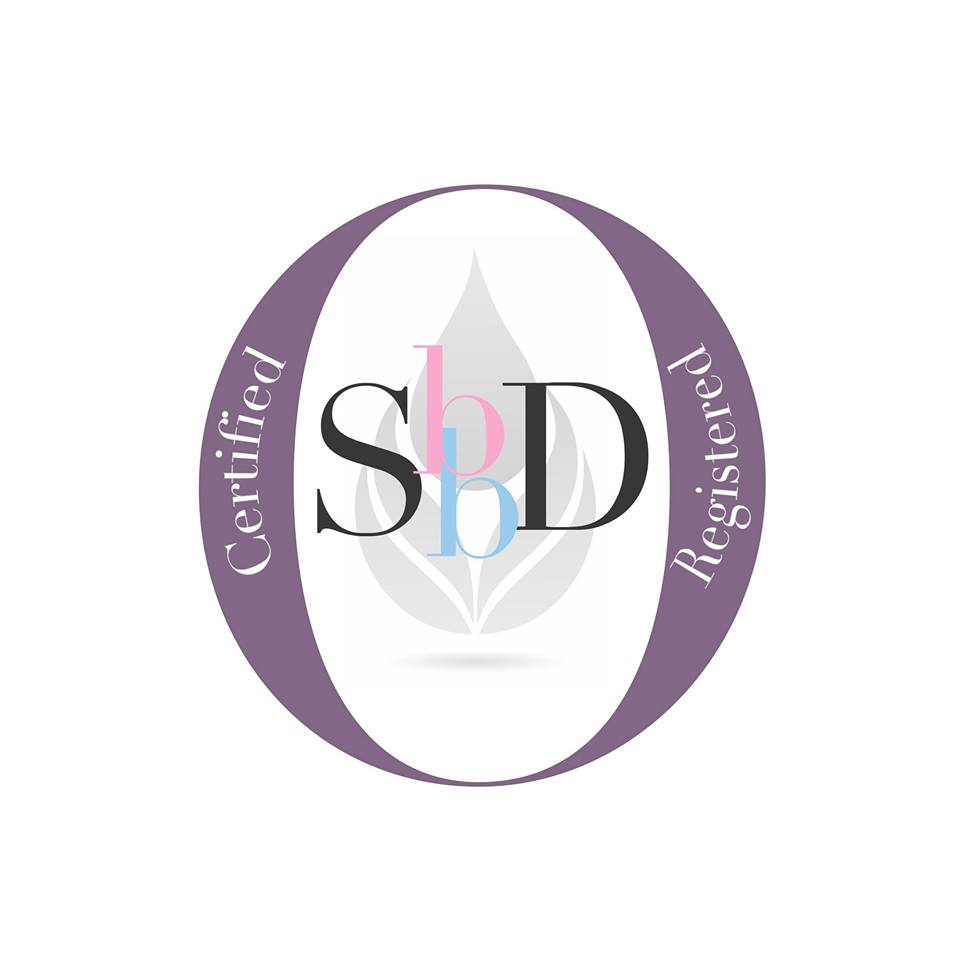The question seems absurd, and jarring. Why? Because we mothers love our children endlessly.
Even mothers who have faced elective abortion know, that a “right to choose” really isn’t what is primary. There is nothing even remotely enjoyable about facing such an enormous conflict – the most difficult decision in a parent’s life.
So when articles flow through the internet, when phrases such as “a good birth is more than a living baby” it brings empowerment to pregnant mothers, but it does so with negative consequences.
I love midwifery. I love natural childbirth. The natural childbirth movement, even while it seems to disregard bereavement in examples such as this, truly brings value and options to mothers enduring loss. But I know that my expressing my deep concern over these couple points in the natural childbirth movement will come at great consequence. My beloved friends will question which “side of the fence” I am on. I know, because I have endured it for years. And every time I bring specific mention to this issue, I lose another friend, but gain more certainty that the subject is an important one.
Even with homebirth on the rise in the US, it is still very much in the minority of birthing choices, and anything that speaks to any remote negativity of homebirth is seen as a threat against a valuable option that is already sorely underappreciated in our culture.
But by residing in fear and pushing opportunities for growth into the dark room, the room that holds the reality that planned homebirth in fact can result in unexpected homebirth loss, the natural birth community at large is actually outcasting mothers. Midwives and doulas with these beliefs tend to shove such truths into the Dr. Amy Tuteur corner, saying any and all statements that appear at all to criticize homebirth are an attack against the rights of pregnant mothers. And it is precisely because this happens, these mothers find their only platform that addresses the specifics of homebirth loss at that very place that focuses attention on strong objection to midwifery and most of the tenants of natural childbirth. To be frank, our own collective resistance to peel back superficialities in this movement that we so love, is a very real factor in why the “anti-homebirth” movement has grown. And while that platform might brings recognition, it does not bring healing. It festers hostility, aggression, contempt and blame. We have needed a different way. Stillbirthday boldly addresses the reality of homebirth loss, at the expense of some precious friendships, because I and because stillbirthday is unwaveringly and ceaselessly pro-healing.
And two articles in particular as of late, making their way through the natural childbirth community, beckon me to address my concern here.
Funny or not, there’s more behind the joke.
When we speak strongly to the truth that a mother has feelings during labor and birth, we are empowering her to realize the full psycho-spiritual and relational implications of childbirth and its process. This is a very good thing.
But when we joke about homebirth loss, scoffing at “I wanted to have my baby at home, but I wanted my baby to live” without anything more to the conversation, we are literally invalidating the very real truth that in fact, babies can die at home as well. And with homebirth on the rise, it is a statistical, intrinsic fact, that homebirth loss too, is on the rise. One simply begets the other. Why? Because babies die in hospitals too. It is the adage used to silence hurting or inquisitive mothers. But there is a lesson in this truth for the natural childbirth community.
Let me be clear. I am not saying homebirth increases a chance of stillbirth, but that in and of itself wherever more mothers are going to give birth, there is a connection to the higher number of births to the higher number of losses.
I know bereavement, and infant loss is one of the most pervasive fears among mothers considering homebirth, and blame can be an easy target, a magnified consequence in unexpected home stillbirth. So let us support all of her questions, all of her fears, well.
How much more is there to birth, than a living baby?
Mothers, when you hear someone say, “There’s more to birth than a living baby” you need to know entirely clearly what the person means to convey. Because such a sentiment actually has an underlying “pro-choice” subtlety, and because without further explanation implies that a living baby is an aspect of birth equal to the birthspace that is quiet, calm, unintrusive, personal and loving, suggesting that it is entirely acceptable and expected to bargain one for the other, you would do well to clarify, to what extent this actually includes the unspoken but implied negotiable nature of your baby’s life. If you hold the belief that whatever happens is the sovereign will of God/universe, I implore you to meditate on the magnitude of this belief, to discern if it is founded in pure faith (which it absolutely can and should be) or if there is any element of denial or even of tempting God/universe involved, and what support you will need if faced with the circumstances if they were to come to be. Such reflection demands emotional and spiritual maturity regardless of the conclusion observed.
As we address the psychological health of the mothers we serve, we need to address it comprehensively, even if it means reflecting on the potential consequences to our quick adages and expressions.
Is there more to birth than a living baby? Yes, I do believe there is. But because stillbirthday is neither pro-life nor pro-choice, it is important that we offer a couple of points for your consideration if you are deciding on a homebirth for your living baby and have heard the statement that there is more to birth than a living baby:
- It is entirely possible that your relationship with your midwife is different than what your relationship with your obstetrician might be. It is likely that you lean on your midwife as a beloved friend, someone who you entrust with your feelings. In many ways, she walks beside you, and in many others, she leads you. If you do endure unexpected loss, how do you anticipate her continuing to walk alongside you? How do you envision her continuing to lead you? Going to the depth of your underlying fears when you hear such adages helps to console your fears and remind you of the value of your choices.
- Are your loved ones supportive of your homebirth choice? How would they respond if you do have an unexpected stillbirth? This is not a question of choosing hospital birth just to appease extended family, but is a real, necessary question to consider – because you will need to arm yourself with substantial supportive resources if you do encounter blame or shame. The feelings of bereavement can already be intense, and compounding accusations onto an already difficult situation can make things dangerously volatile.
Lovers of the natural birth community annoyed at my bringing the concern with this adage to your attention, I beg you to consider the ramifications of us continuing to chide at the reality of infant death. Please do not be afraid of the dark room, or of your mothers finding it. They will follow you, more than you know. I invite you to show them the dark room, tell them how you will support them as they face these very real questions to homebirth, rather than shushing and scoffing these things as attacks against a very good thing. It is with transparency and authenticity, that you can make it even better. In fact, we have midwives in our online birth & bereavement training, and I greatly encourage you to consider this investment in your families.
HomeBirth Loss Awareness: the pregnancy & infant loss awareness ribbon made by a rebozo, atop a birth ball.
This is the draft of our upcoming official logo for HomeBirth Loss Awareness Day, December 19.
